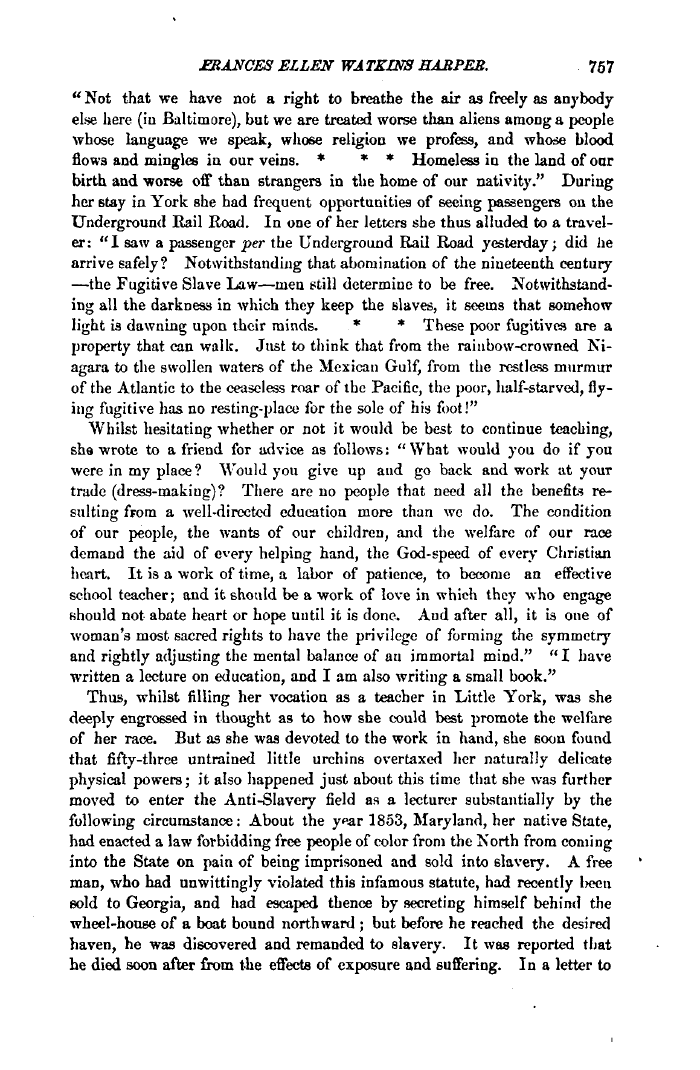 |
||||
 |
||||
| £RANCE8ELLEN WATKOTS HARPER. 757 " Not that we have not a right to breathe the air as freely as anybody el.se here (iu Baltimore), but we are treated worse than aliens amoog a people whose language we speak, whose religion we profess, and whose blood flows and mingles iu our veins. * * * Homeless iu the land of oar birth and •worse off than strangers in the home of our nativity." During her stay in York she had frequent opportunities of seeing passengers on the Underground Rail Road. In one of her letters she thus alluded to a traveler: "1 saw a passenger per the Underground Rail Road yesterday; did he arrive safely? Notwithstanding that abomination of the nineteenth century —the Fugitive Slave Law—men still determine to be free. Notwithstanding all the darkness in which they keep the slaves, it seems that somehow light ia dawning upon their minds. * * These poor fugitives are a property that can walk. Just to think that from the rainbow-crowned Niagara to the swollen waters of the Mexican Gulf, from the restless murmur of the Atlantic to the ceaseless roar of the Pacific, the poor, half-starved, flying fugitive has no resting-place for the sole of his foot!" Whilst hesitating whether or not it would be best to continue teaching, she wrote to a friend for advice as follows: "What would you do if you were in my place? Would you give up and go back and work at your trade (dress-makiug)? There are 110 people that need all the benefits resulting from a well-directed education more than we do. The condition of our people, the wants of our children, and the welfare of our race demand the aid of every helping hand, the God-speed of every Christian heart. It is a work of time, a labor of patience, to become an effective school teacher; and it should be a work of love in which they \vho engage should not abate heart or hope until it is done. And after all, it is one of woman's most sacred rights to have the privilege of forming the symmetry and rightly adjusting the mental balance of an immortal mind." "I have written a lecture on education, aod I am also writing a small book." Thus, whilst filling her vocation as a teacher in Liittlc York, was she deeply engrossed in thought as to how she could best promote the welfare of her race. But as she was devoted to the work in hand, she soon found that fifty-three untrained little urchins overtaxed her naturally delicate physical powers; it also happened just about this time that she was further moved to enter the Anti-Slavery field as a lecturer substantially by the following circumstance: About the year 1853, Maryland, her native State, had enacted a law forbidding free people of color from the North from coming into the State on pain of being imprisoned and sold into slavery. A free man, who had unwittingly violated this infamous statute, had recently been sold to Georgia, and had escaped thence by secreting himself behind the •wheel-house of a boat bound northward ; but before he reached the desired haven, he was discovered and remanded to slavery. It was reported that he died soon after from the effects of exposure and suffering. In a letter to |